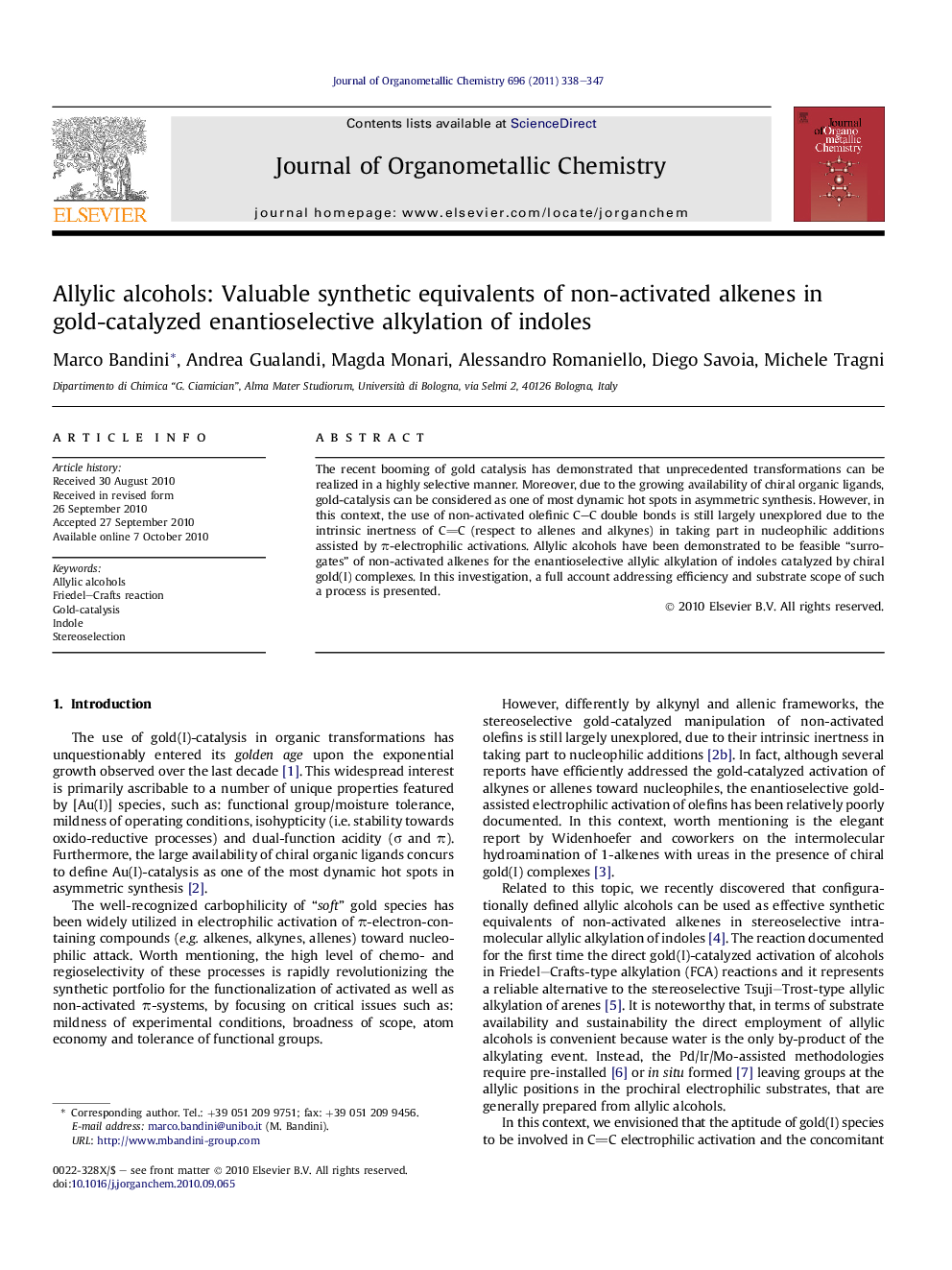| Article ID | Journal | Published Year | Pages | File Type |
|---|---|---|---|---|
| 1324893 | Journal of Organometallic Chemistry | 2011 | 10 Pages |
The recent booming of gold catalysis has demonstrated that unprecedented transformations can be realized in a highly selective manner. Moreover, due to the growing availability of chiral organic ligands, gold-catalysis can be considered as one of most dynamic hot spots in asymmetric synthesis. However, in this context, the use of non-activated olefinic C–C double bonds is still largely unexplored due to the intrinsic inertness of CC (respect to allenes and alkynes) in taking part in nucleophilic additions assisted by π-electrophilic activations. Allylic alcohols have been demonstrated to be feasible “surrogates” of non-activated alkenes for the enantioselective allylic alkylation of indoles catalyzed by chiral gold(I) complexes. In this investigation, a full account addressing efficiency and substrate scope of such a process is presented.
Graphical abstractThe efficient gold-catalyzed activation of allylic alcohols for the stereoselective alkylation of indoles is documented. Chiral MeOBIPHEP(AuX)2 complexes provided ready access to several classes of polycyclic indole compounds, i.e. tetrahydro-β-carbolines and tetrahydrocarbazoles, through intramolecular Friedel–Crafts-type allylic alkylation, in good yield and high enantiomeric excesses.Figure optionsDownload full-size imageDownload as PowerPoint slideResearch highlights► Stereoselective hydroarylation of unactivated alkenes. ► Gold-catalyzed allylic alkylations of indoles with alcohols. ► Enantioselective synthesis of polycyclic indoles.
